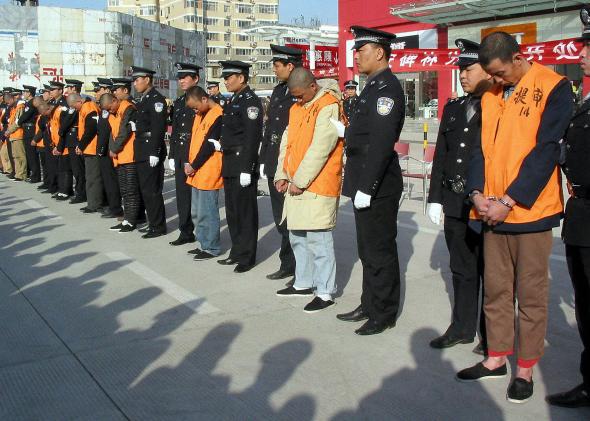Amnesty International doesn’t even count China in its annual report on the death penalty, as the number of executions the country carries out each year—thought to be in the thousands—is officially a state secret.
But as Al Jazeera reports, there’s some evidence that the country’s gallows aren’t as busy as they used to be:
The Dui Hua Foundation has reviewed the decisions made by the Supreme People’s Court (SPC) and found the number of executions has fallen in recent years, citing the 2007 return of “the power of final review” to the court.
“Since then, the number of executions nationwide may have dropped by more than a third with declines of nearly 50 percent in some locales,” the group said, citing a report in the Southern Weekly, a mainland magazine based in the southern industrial city of Guangzhou.
This is all relative, of course. The foundation believes that 2,400 people were executed in China in 2013, more than twice the number in the rest of the world combined. But official attitudes about the practice may be slowly shifting with the ruling Communist party considering dropping nine crimes, including counterfeiting and prostitution, from the list of capital offenses.
At the very least, China appears to have shifted from the days of mobile death vans roaming the countryside. In one grisly indicator, China’s lower number of executions may be having an impact on the international market for harvested organs. It’s also interesting that this is happening at the same time as a corruption crackdown so widespread and draconian it seems to be driving many officials to suicide.
China’s potential death penalty rethink also comes at a time when the total number of executions around the world is on the rise, and a number of countries that had appeared to be moving away from the practice—including India, Japan, Nigeria, and Indonesia—seem to be going back to it.
South Korean prosecutors announced today that they would seek the death penalty for Lee Joon-seok, the ferry captain blamed for the deaths of nearly 300 people when his ship capsized in April. South Korea hasn’t executed anyone since 1997, but evidently the public outrage surrounding this case is pushing the courts toward drastic measures.
